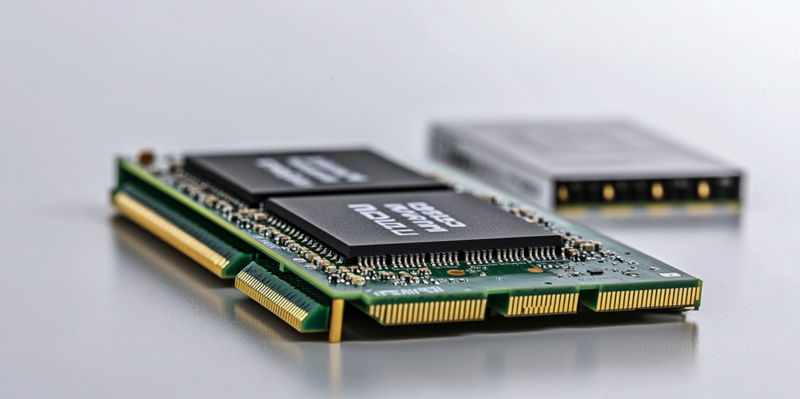GeIL, a leading manufacturer of high-performance memory modules, has introduced its next-generation CUDIMM and UDIMM DDR5 memory modules, offering performance and aesthetic enhancements. These new products demonstrate GeIL’s commitment to pushing the boundaries of memory technology. The company announced a comprehensive range of DDR5 products with speeds from 6400MT/s to 8000MT/s, including new high-speed options of 8800MT/s and 9200MT/s aimed at overclocking enthusiasts. These new modules ensure compatibility and support for Intel’s latest Core Ultra Processors (Series 2).
Adding an additional CKD (Clock Driver) chip, adhering to the latest JEDEC standards, enhances the CUDIMM modules’ performance. This chip regenerates the clock signal directly on the DIMM, minimizing signal degradation and noise, which in turn enhances memory stability and performance. Supporting stable operation up to 7200MT/s, the CKD chip is crucial for maintaining signal integrity and reliability. These improvements enable higher and more stable speeds, making these memory modules suitable for both standard and high-performance applications where stability is key.
GeIL’s CUDIMM memory products have already seen significant adoption by manufacturers due to their enhanced performance capabilities, topping 10,000 MT/s in some cases. The quick embrace of CUDIMM solutions by other major industry players like G.Skill and Adata XPG highlights the industry’s movement towards these performance-enhanced memory modules. This trend underscores a growing demand for better, more stable memory solutions in high-end computing environments, driven by the increasing complexity and performance demands of modern applications.
GeIL plans to launch its new memory products by the end of November, although pricing details have not yet been disclosed. The company’s innovative approach and rapid adoption by manufacturers clearly indicate a trend towards enhancing memory stability and performance in high-end computing environments. The cessation of traditional limitations on memory performance may set a new standard in the industry, showcasing GeIL’s role in shaping the future of high-performance memory solutions.

